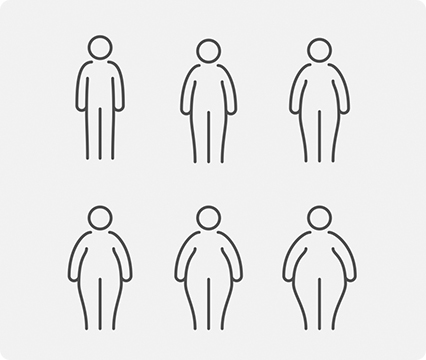Symptoms of Depression, eating disorders, and binge eating in adolescents with obesity
Adolescents suffering from obesity were found to be more likely to experience eating disorders and depressive symptoms. Clinical reviews and self-report questionnaires are crucial for identifying these issues and ensuring proper intervention. The objective of this study by Jebeile et al. (2024) was to evaluate how the Fast Track to Health study affected the self-reported symptoms of eating disorders, depression, and binge eating in obese teenagers. This randomized clinical trial, conducted from 2018 to 2023, occurred across multiple sites at children’s hospitals in Sydney and Melbourne, Australia. Adolescents with obesity (defined as an adult-equivalent body mass index ≥30) and at least one obesity-related problem, ages 13 to 17, were included. A very low-energy diet was followed by either intermittent energy restriction (IER) or continuous energy restriction (CER) for four weeks during the 52-week experiment. The CESDR-10 (Center for Epidemiologic Studies Depression Scale–Revised 10-Item Version for Adolescents), the EDE-Q (Eating Disorder Examination Questionnaire), and the BES (Binge Eating Scale) were used to examine symptoms of eating disorders, depression, and binge eating, respectively. At many intervals (weeks 0, 4, 16, and 52), participants were examined for these symptoms, and during dietetic consultations, any new signs of disordered eating were recorded. Among the 141 adolescents (average age 14.8 years; 50.4% male), baseline scores for EDE-Q, CESDR-10, and BES were recorded. There were no discernible differences between the groups at week 52 in terms of changes in symptoms of binge eating, eating disorders, or sadness. Nonetheless, by week 52, the decreases in eating disorders and depressive symptoms that had been seen at week 4 had persisted. The IER group continued to experience fewer signs of binge eating. Seventeen teenagers (12.1%) required further assistance or referral for disordered eating and/or depression, including seven who had their symptoms start or worsen during the intervention. Many obese teenagers who sought therapy also reported having eating problems and depressive symptoms. Most people saw a decrease in their symptoms, although others needed more assistance. This implies that treating obesity presents a vital chance to identify and cure depression and disordered eating. [NPID: Adolescents, obesity, depression, eating disorders, binge eating, randomized clinical trial, intermittent energy restriction, continuous energy restriction, self-report symptoms, disordered eating]
Year: 2024
 Navigation
Navigation








